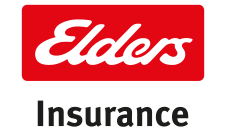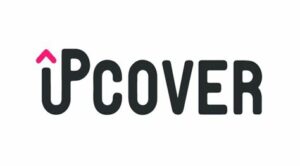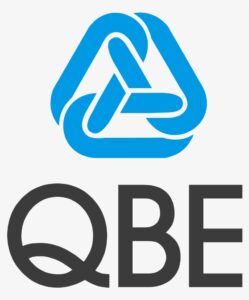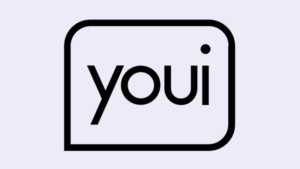Disclosure: This post contains sponsored links whereby we may receive a commission for any purchases made.
Running a small business in Australia comes with its share of risks. From natural disasters to liability claims, unexpected events can threaten everything you’ve built. That’s why finding the right insurance coverage isn’t just smart—it’s essential for protecting your company’s future.
Whether you’re managing a construction company, running a retail shop, or operating in the hospitality sector, small business insurance acts as a safety net when things go wrong. It covers everything from public liability incidents to property damage, ensuring that one mishap doesn’t destroy years of hard work. With flexible options ranging from $5 million to $20 million in coverage limits, Australian business owners can tailor protection to their specific needs.
Choosing the best small business insurance means understanding your unique risks and finding coverage that addresses them without breaking the bank. Let’s explore what makes great business insurance and how to find the perfect policy for your Australian enterprise.
Top Small Business Insurance Platforms In Australia For February 2026
1) BizCover

BizCover is one of Australia’s premier online platforms for comparing and purchasing business insurance. With a reputation for delivering comprehensive, tailored policies, BizCover offers a broad range of coverage options for businesses of all sizes. Whether you’re looking for professional indemnity, public liability, or business interruption insurance, BizCover provides a user-friendly interface that allows customers to compare multiple quotes from trusted insurers in just a few minutes.
Founded to simplify the process of obtaining business insurance, BizCover has earned praise for its easy-to-use platform, competitive pricing, and responsive customer service. However, like many companies, it also faces challenges with certain aspects of its service, especially in handling billing issues and claims processing.
Here’s a closer look at what BizCover offers, along with a balanced breakdown of its pros and cons.
Pros of BizCover:
1. User-Friendly Platform for Quick Comparisons
BizCover is known for its easy-to-navigate website and intuitive comparison tool. Users can effortlessly compare quotes from multiple insurers, saving them time and effort when selecting the best policy. The process is streamlined, allowing business owners to purchase insurance online in just minutes.
2. Competitive Pricing and Price Promise
BizCover’s Price Promise ensures that customers get competitive rates without the hassle of shopping around. Customers benefit from flexible payment options, including monthly or annual plans, to suit their budget and cash flow needs.
3. Wide Range of Coverage Options
BizCover offers customizable business insurance packages with a variety of coverage options. These include:
-
Public Liability Insurance: Protects against injury or property damage claims made by third parties.
-
Employee Dishonesty: Coverage for financial loss resulting from employee theft or dishonesty.
-
Business Interruption Insurance: Protects against income loss caused by unexpected events.
-
Machinery Breakdown and Electronic Equipment Insurance: Essential coverage for businesses reliant on equipment.
This extensive coverage allows businesses to tailor their insurance packages according to their specific needs.
4. Excellent Customer Service
Many customers have praised BizCover’s friendly and knowledgeable staff. Reviews highlight how helpful consultants assist in understanding policies, selecting the right coverage, and answering queries quickly. Many report a positive experience with phone-based customer support, which makes purchasing insurance and making policy changes much easier.
5. Instant Cover
BizCover provides instant cover, meaning once a policy is selected, customers can receive confirmation and policy details directly to their inbox, ensuring immediate protection for their business.
Cons of BizCover:
1. Issues with Billing and Payment
Some customers have reported issues with BizCover’s billing process, such as unexpected charges or payments being taken after cancellations were requested. For example, Jacqueline Campbell experienced multiple charges despite having canceled her policy. This issue highlights potential weaknesses in BizCover’s account management and cancellation process.
2. Slow Claims Processing and Policy Activation
A few customers have expressed frustration with delays in claims processing or policy activation. For instance, Chicken from VIC reported difficulties in getting their policy activated through BizCover’s underwriter, Vero, leading to poor customer experiences. These delays could be problematic, especially when handling urgent claims or coverage needs.
3. Customer Service Bottlenecks
While BizCover generally receives positive feedback about its customer service, some users have reported challenges with getting issues escalated. Customers have noted that, during more complex issues, such as billing disputes or policy cancellations, it can be difficult to reach higher-level support or find effective solutions. This highlights the need for better escalation processes and quicker resolution times.
4. Mixed Experiences with Refunds
A number of reviews suggest that when customers request refunds for payments they didn’t authorize or when they cancel policies, the process can be slow and cumbersome. For example, Peacepal had to make repeated calls to get a refund after being charged for a renewal they never asked for.
Conclusion: Is BizCover the Right Choice for Your Business?
BizCover stands out as a top provider of business insurance in Australia, offering a wide range of affordable insurance options, excellent customer service, and a quick and straightforward process for obtaining coverage. The platform’s price comparisons and instant cover are particularly useful for businesses seeking efficiency and flexibility.
However, potential customers should be mindful of occasional billing issues and delays in claims processing that have been reported by some users. Despite these challenges, BizCover continues to receive high ratings for its overall service and remains a strong contender in the competitive landscape of Australian business insurance.
If you’re looking for a convenient, user-friendly way to protect your business, BizCover is a solid choice—just be sure to stay on top of your account management and understand the terms of your coverage to avoid potential billing hiccups.
2) Elders Business Insurance

Elders Insurance is a well-established Australian insurance provider offering a wide range of personal, business, agricultural, and motor insurance products. With over 200 locations across both regional and metropolitan areas, Elders Insurance prides itself on providing tailored insurance solutions for its customers. The company distributes policies through its partnership with QBE Insurance, ensuring a solid backing for its offerings. While the company offers diverse insurance products, customer experiences vary, with some praising the local agent support and others highlighting concerns with claims processing and customer service.
Pros of Elders Insurance:
-
Tailored Insurance Solutions for Businesses and Individuals
Elders Insurance excels in providing flexible coverage for a wide array of needs. From home and contents insurance to business insurance, vehicle insurance, and farm insurance, Elders allows customers to tailor policies to their specific circumstances. Their offerings are particularly attractive to small and medium enterprises, farmers, and rural residents who need insurance that caters to local conditions and challenges. -
Local Expertise and Personal Service
One of Elders Insurance’s standout features is its local agent network. With over 200 locations across Australia, customers benefit from personalized service and direct support from agents familiar with the region and specific business needs. This can be particularly valuable for rural or regional clients, who appreciate a more community-based approach to insurance. -
Comprehensive Coverage Options
The company offers a broad range of business and personal insurance products. These include coverage for property, liability, interruption, theft, glass, vehicles, and more. For businesses, Elders provides specialized policies like workers’ compensation, machinery breakdown, and professional indemnity, making it a strong choice for a variety of sectors. -
Reputable Underwriting Partner
Elders Insurance distributes its products through QBE Insurance, one of the largest and most trusted insurance companies in Australia. This partnership ensures that customers have access to reliable financial backing, helping to instill confidence in the company’s long-term stability and claims handling.
Cons of Elders Insurance:
-
Customer Service and Claims Handling Issues
Despite its strengths, Elders Insurance receives mixed reviews regarding its customer service and claims handling. Many users report delays in response times, difficulty in reaching claims representatives, and long processing times for claims. For example, several customers highlighted cases where their claims remained unresolved for months, leaving them frustrated and dissatisfied with the service. -
High Premium Increases
Some customers have reported significant premium increases after long periods of coverage with Elders Insurance. One review mentioned a home insurance premium that nearly doubled over two years, which caused frustration for long-term customers who felt the increase was excessive. -
Limited Communication and Follow-Up
Multiple reviews note that while agents are easy to reach when purchasing insurance, they are difficult to contact when a claim is involved. Customers often report waiting for extended periods without updates, and in some cases, claims were not even acknowledged until a formal complaint was made. -
Inconsistent Claims Outcomes
A recurring issue among users is claims denial or receiving lower payouts than expected. Some customers mentioned that even after paying extra premiums for specific coverages, their claims were denied based on vague or disputed exclusions in the policy terms. For example, one business customer experienced significant frustration after their commercial theft claim was limited to a much smaller payout than anticipated.
Third-Party Reviews: A Mixed Reputation
Elders Insurance has a TrustScore of 3.5/5 on Trustpilot, with many reviews highlighting both positive and negative experiences. On the positive side, some customers praised the ease of policy setup, the helpful local agents, and the simplicity of making certain claims. However, the negative reviews paint a picture of poor communication, delayed claims, and unresolved issues, especially with third-party claims and property damage.
For instance, a customer detailed a frustrating experience with a motor accident claim, mentioning that after submitting the required documentation, they had to wait for months without receiving any updates. Another review described the company’s customer service as unresponsive, with some customers claiming to have been on hold for hours without ever speaking to a representative.
Final Thoughts: Should You Choose Elders Insurance?
Elders Insurance is a reputable provider offering a comprehensive range of insurance products suited for both individuals and businesses, particularly in regional and rural areas. The company’s strong suit is its local agent network, providing personalized service and guidance. However, potential customers should be aware of the mixed feedback regarding claims handling and customer service. If you prioritize personalized service and local expertise, Elders Insurance might be a good fit. However, if fast claims processing and reliable customer service are essential to you, it may be worth comparing other options.
In conclusion, while Elders Insurance has its merits, especially for regional and small business customers, it’s essential to weigh the positive features against the possible challenges around claims and customer support. Always ensure that you fully understand the Product Disclosure Statement (PDS) and Target Market Determination (TMD) before purchasing a policy.
3) Upcover Business Insurance

Upcover is an Australian business insurance provider tailored to small businesses, startups, and independent contractors. Known for its user-friendly platform and quick access to coverage, Upcover offers a range of specialized policies designed to meet the unique needs of Australian businesses. The platform simplifies the insurance process with instant online quotes and personalized coverage for over 1,000 industries. Whether you’re a sole trader, a tech startup, or a fitness professional, Upcover’s insurance products offer essential protection, including cyber liability, professional indemnity, and public liability insurance.
Key Features of Upcover Business Insurance:
-
Quick, Easy Online Quotes: Upcover prides itself on a fast, streamlined quote process, delivering coverage details in seconds, making it ideal for business owners who need insurance quickly.
-
Tailored Coverage Options: With a focus on small businesses and independent contractors, Upcover provides customized policies that suit a wide range of professions, from healthcare to technology.
-
Cyber Liability Protection: As cyber threats continue to rise, Upcover offers standalone cyber & privacy liability insurance, providing businesses with the protection they need against data breaches and cyberattacks.
-
Backed by ProRisk: Upcover’s products are supported by Professional Risk Underwriting Pty Ltd (ProRisk), ensuring reliable coverage and strong backing.
Pros of Upcover Business Insurance:
-
Instant Coverage Quotes
Upcover’s platform allows business owners to receive a quote in less than 15 seconds, making it one of the fastest insurance providers for small businesses. This streamlined process is especially useful for time-sensitive needs. -
Wide Range of Coverage Types
Whether you need professional indemnity, public liability, cyber insurance, or sole trader liability protection, Upcover has a broad selection of policies to choose from. Their professional indemnity insurance protects against allegations of negligence, while public liability coverage safeguards against third-party claims. -
Tailored for Australian Small Businesses
Upcover specializes in covering small Australian businesses and freelancers across diverse industries. The platform provides coverage for over 1,000 occupations, including health professionals, IT contractors, and fitness trainers, ensuring businesses get the protection they need. -
Cyber & Privacy Liability Insurance
As data breaches and cybercrime become more prevalent, cyber liability insurance is a must-have for modern businesses. Upcover offers dedicated protection for businesses against cyberattacks and data privacy issues. -
Simple Claims Process
In the unfortunate event of a claim, Upcover provides a simple online claims form and clear guidelines on how to navigate the process, reducing the complexity and stress typically associated with claims.
Cons of Upcover Business Insurance:
-
Limited Coverage for Some Professions
While Upcover caters to a wide range of industries, certain professions, particularly niche or creative fields like music composition, may not have access to all coverage types, such as professional indemnity insurance. Business owners in specialized sectors may find that not all their insurance needs are met. -
Not a Full Comparison Tool
Unlike comparison websites, Upcover does not compare insurance options from all available providers in the market. This limits your ability to explore every possible option before purchasing, and may not offer the most competitive rates for all types of coverage. -
No Physical Brokers
For businesses that prefer a more hands-on, personal approach to their insurance, the entirely online nature of Upcover might be a downside. Upcover operates mainly through an automated platform, which may not suit those seeking in-depth advice or personal interaction. -
Eligibility Requirements for Certain Coverage
Some policies, such as worker’s compensation insurance, are dependent on factors like the number of employees or business structure. Upcover might not provide all coverage options for businesses that don’t meet the specific criteria for certain plans.
Conclusion
Upcover is a modern, customer-focused insurance provider that makes business coverage easier and faster to access. With instant quotes, a wide range of tailored policies, and a focus on small businesses and contractors, it offers valuable protection for many Australian industries. However, it may not provide coverage for every business type, and its entirely digital format might not suit every business owner’s preferences. Overall, Upcover is an excellent option for small businesses looking for affordable, quick insurance solutions, especially for those in high-risk sectors like cyber security and healthcare.
4) QBE Business Insurance

QBE Insurance is a trusted name in the Australian insurance market, offering tailored business insurance solutions to small and medium-sized businesses across various industries. With over 100 years of experience, QBE stands out for its comprehensive range of insurance products designed to provide flexible coverage that adapts to the unique needs of business owners. Whether you’re a tradesperson, retailer, or service provider, QBE’s small business insurance is designed to protect your business assets, employees, and reputation.
Why Choose QBE Small Business Insurance?
QBE offers a wide variety of coverage options, including public liability insurance, property protection, and business interruption coverage. Their policies are designed to be flexible, so you only pay for what you need, and you can easily adjust your coverage as your business grows. QBE’s commitment to customer satisfaction is reflected in their 24/7 claims support and streamlined online application process.
Pros of QBE Small Business Insurance:
-
Comprehensive Coverage Options
QBE’s Small Business Insurance comes with a range of flexible covers, including public liability insurance, business interruption, machinery breakdown, glass breakage, and more. This allows business owners to customize their insurance policies according to their specific needs, ensuring comprehensive protection. -
Public Liability Insurance Included
As part of the base package, QBE automatically includes public liability insurance that covers third-party injury or property damage. This essential cover can be customized with limits of $5 million, $10 million, or $20 million, giving you the flexibility to choose the level of protection suitable for your business operations. -
Industry-Specific Tailoring
QBE offers policies tailored to a variety of industries, from construction and trades to retail and hospitality. This ensures that small business owners in different sectors get the precise coverage they need, whether they’re running a café, a law firm, or a building business. -
24/7 Claims Service
QBE provides round-the-clock claims support, ensuring that businesses can access assistance and repairs promptly, even in the midst of a crisis. Their network of suppliers and claims teams is ready to help minimize business disruption during a claim. -
Easy Online Process
The online platform makes it easy to get a quote, apply for coverage, and manage your policy. With a simple application process and fast approval, QBE allows small business owners to secure insurance without lengthy phone calls or complicated paperwork. -
Strong Customer Satisfaction
With a 4.8/5 rating based on verified reviews, QBE is highly rated by customers for its straightforward process, competitive pricing, and responsive customer service. Many users report positive experiences with the company, especially in terms of ease of obtaining and managing policies.
Cons of QBE Small Business Insurance:
-
Additional Coverage Costs
While QBE’s policies are flexible, adding extra coverage (e.g., machinery breakdown, portable items, or tax audit protection) can increase the premium. Business owners should carefully assess their needs to avoid over-insuring or paying for coverage they might not need. -
Policy Exclusions and Conditions
As with any insurance, there are exclusions and conditions that apply to each policy. It’s crucial for business owners to read the fine print and fully understand the terms and conditions to avoid surprises when making a claim. -
Claims Process May Require Documentation
While QBE provides efficient claims service, some customers have mentioned that the documentation required for claims can be cumbersome. Ensure that all necessary paperwork is readily available to expedite the process. -
Limited International Coverage
While QBE has a strong presence in Australia and New Zealand, their international coverage options may be limited for businesses operating on a global scale. Businesses with international operations may need additional policies or brokers to secure adequate coverage outside of Australia.
Conclusion
QBE Small Business Insurance is a well-rounded solution for Australian small business owners seeking flexibility, comprehensive protection, and excellent customer service. With the option to customize coverage based on industry needs and the peace of mind from 24/7 claims support, QBE stands out as a reliable insurer. However, as with all insurance, business owners should carefully evaluate their coverage needs to avoid paying for unnecessary add-ons and ensure that the terms and conditions are fully understood.
If you’re a small business owner in Australia looking for a comprehensive insurance plan that can be tailored to your specific needs, QBE provides a solid option that combines flexibility, reliability, and strong customer satisfaction.
5) Youi Business Insurance

Youi is a leading Australian general insurer that underwrites its own policies, a subsidiary of the South African-based OUTsurance Group. Established in Australia in 2008 and headquartered in Queensland, Youi is widely recognised for its aggressive marketing and strong focus on personalised customer service across its primary product lines: car insurance, home & contents insurance, and small business insurance.2
While their success and numerous industry awards (particularly in personal lines) are often linked to their human-centric, consultative approach, this model contrasts sharply with the digital-only quoting of many competitors. Youi’s key value proposition is to provide “You-shaped” cover, often involving a direct phone conversation to tailor the premium and policy to the customer’s specific circumstances. Their business insurance offering specifically targets small businesses and sole traders with a turnover of less than $1 million, primarily offering Public & Products Liability with optional add-ons for essential business assets like tools and money.
Pros:
- Award-Winning Customer Service: Youi consistently receives high praise for its staff, with multiple customer reviews highlighting individual advisors for their professionalism, patience, and friendly assistance.5 This focus on the human touch is a core strength, especially for business owners who prefer a discussion over a purely digital transaction.
- Negotiable Pricing Structure: Unlike set-price online quotes, Youi’s phone-based model often allows for price negotiation or the securing of significant discounts based on loyalty or individual needs. Customers have reported receiving “amazing discounts” and competitive rates, particularly when comparing to their existing insurer.
- Flexible Excess Options: Customers have the ability to customise their basic excess payment, allowing them to adjust their premium cost to suit their cash flow.
- Specialist Business Advisors: The company maintains a dedicated team of Small Business Insurance advisors, many of whom have trade or business backgrounds, providing informed advice on business liability insurance and optional coverages like money, glass, and business items (tools of trade).
Cons:
- Inefficient Quoting Process: This is the most consistent and severe customer pain point. The online system is often criticised for being a “waste of valuable time,” requiring users to enter personal information repeatedly and ultimately forcing a mandatory call-back to finalise the quote and premium. This high-friction model is a major drawback for modern business owners seeking instant online quotes.
- Policy & Claims Uncertainty: While overall customer satisfaction awards are strong, there are notable negative reviews regarding claims handling, including the cancellation of a policy after a small claim. For business liability, their standard policy may lack certain features, such as Advertising Injury cover, which is often standard with other providers.
- Limited Coverage for Assets: Youi’s small business product largely focuses on Public and Product Liability. While coverage for tools of trade and business items is available as an optional add-on, it has a per-item limit ($2,500) and may not be suitable for businesses with specialised or high-value equipment, forcing those customers to seek coverage elsewhere.
- Product Fit Issues: Some customers report being provided quotes for products they later found out Youi did not cover for their specific business type, indicating potential limitations in their underwriting appetite compared to a broad market broker.
Essential Types of Small Business Insurance Every Australian Business Needs

Australian small businesses face unique risks that require specific insurance protection. Understanding which coverage types are mandatory versus optional helps business owners make informed decisions about protecting their operations.
Workers Compensation Insurance
Workers compensation insurance stands as the most critical mandatory coverage for Australian businesses with employees. Every state and territory requires businesses that employ staff to carry this protection, making it a legal obligation rather than an optional safeguard.
Coverage requirements vary by state, with different premium structures and benefit levels. For example, businesses in high-risk industries like construction face higher premiums than office-based operations. Most policies cover:
- Medical treatment costs
- Weekly compensation payments during recovery
- Rehabilitation expenses
- Lump sum payments for permanent impairments
- Death benefits for dependents
Small business owners should note that sole traders without employees typically don’t need workers compensation unless they’re contractors in specific industries where it’s mandatory.
Public Liability Insurance
Public liability insurance protects businesses when third parties suffer injuries or property damage due to business operations. While not legally required for most businesses, certain industries and locations mandate this coverage to operate legally.
This coverage responds to claims from customers, suppliers, or members of the public who experience harm connected to business activities. Australian insurers typically offer coverage limits of $5 million, $10 million, or $20 million, depending on business needs and risk exposure.
Common scenarios covered include:
- Customer slips and falls at business premises
- Property damage during service delivery
- Product-related injuries (when combined with products liability)
- Legal defense costs for covered claims
Trades businesses often need public liability insurance to obtain licenses or access worksites. Retail stores, restaurants, and service providers benefit from this protection due to regular public interaction. The coverage extends to incidents occurring at business premises or during off-site operations.
Premium factors include business type, annual revenue, number of employees, and claims history. A small café might pay differently than a plumbing business despite similar coverage limits due to varying risk profiles.
Professional Indemnity Insurance
Professional indemnity insurance shields businesses providing advice or professional services from claims alleging negligent acts, errors, or omissions. This coverage becomes crucial for consultants, accountants, architects, and other professionals whose work directly impacts client outcomes.
The insurance covers legal defense costs and damages when clients claim financial losses due to professional mistakes. Unlike public liability focusing on physical harm, professional indemnity addresses financial injuries resulting from:
- Incorrect advice leading to client losses
- Breaches of professional duty
- Unintentional copyright infringement
- Loss of client documents or data
- Defamation claims arising from professional services
Coverage typically operates on a “claims-made” basis, meaning the policy must be active when claims arise, not just when alleged incidents occurred. This structure requires careful consideration when switching insurers or retiring from practice.
Many professional associations require members to maintain minimum coverage levels. Government contracts often specify professional indemnity requirements for service providers. Small businesses should assess their exposure based on service types, client profiles, and potential financial impacts of professional errors.
Industry-Specific Insurance Solutions for Australian Small Businesses

Different industries face unique risks that require tailored insurance coverage. Australian small businesses can choose from specialized policies designed to address the specific challenges and exposures of their sector.
Retail and Hospitality Coverage
Retail and hospitality businesses face distinct risks from high customer traffic and product handling. Public liability insurance protects against claims when customers suffer injuries on premises or property damage occurs during business operations. This coverage typically includes compensation payments and legal fees.
Product liability insurance becomes essential for businesses selling goods, covering claims arising from defective products causing injury or damage. Retail businesses with physical premises need property insurance for stock, equipment, and fixtures against risks like theft, fire, or vandalism.
Business interruption insurance helps retail and hospitality operators recover lost income during unexpected closures. This coverage compensates for revenue losses when events like natural disasters or equipment failures force temporary shutdowns.
Key coverage options for retail and hospitality typically include:
- Public liability: $5-20 million coverage limits for customer injuries
- Product liability: Protection against defective product claims
- Stock and contents: Coverage for inventory and business equipment
- Business interruption: Income protection during forced closures
- Theft protection: Security for high-value inventory
Trades and Construction Insurance
Trades and construction businesses operate with unique exposures requiring comprehensive protection. Public liability insurance is often mandatory for obtaining trade licenses and accessing worksites across Australia. This coverage protects against third-party injury or property damage claims during work activities.
Tools and equipment insurance covers portable items essential for daily operations. Construction businesses typically insure power tools, hand tools, and specialized equipment against theft, damage, or loss. Commercial vehicle insurance protects work vehicles like vans and trucks used for transporting tools and materials.
Contract works insurance provides coverage for projects under construction, protecting against damage or defects during the building process. Workers compensation remains mandatory for businesses with employees, covering medical expenses and lost wages for workplace injuries.
Essential insurance for trades and construction includes:
- Public liability: Required for licenses and site access
- Tools and equipment: Portable item protection up to specified limits
- Commercial vehicle: Coverage for work vehicles and transported tools
- Contract works: Project-specific protection during construction
- Workers compensation: Mandatory coverage for employee injuries
Professional Services Protection
Professional service providers need specialized coverage addressing advice-related risks. Professional indemnity insurance protects against claims of negligence, errors, or omissions in professional advice or services. This coverage applies to numerous occupations including consultants, advisors, accountants, and IT professionals.
Cyber liability insurance has become crucial for businesses handling client data. This coverage protects against data breaches, cyber attacks, and associated costs like notification expenses and credit monitoring services. Professional service firms often store sensitive client information making cyber protection essential.
Public liability remains important for client meetings and office visitors. Professional services businesses typically combine multiple coverages creating comprehensive protection against various exposures.
Critical insurance for professional services includes:
- Professional indemnity: Protection for advice-related claims
- Cyber liability: Data breach and cyber attack coverage
- Public liability: Client and visitor injury protection
- Office contents: Equipment and furniture coverage
- Business interruption: Income protection during disruptions
| Industry Type | Primary Risks | Essential Coverage | Typical Limits |
|---|---|---|---|
| Retail/Hospitality | Customer injuries, product issues, theft | Public/product liability, stock protection | $5-10 million liability |
| Trades/Construction | Workplace accidents, equipment damage | Public liability, tools coverage, workers comp | $5-20 million liability |
| Professional Services | Advice errors, data breaches | Professional indemnity, cyber liability | $1-5 million indemnity |
Small business owners should assess their specific industry risks when selecting insurance coverage. Flexible policies allow combining multiple protections into customized packages meeting unique business needs. Working with insurance specialists helps identify appropriate coverage levels based on business size, revenue, and specific industry exposures.
Key Coverage Options to Protect Your Business Assets
Small business owners in Australia face numerous risks that can threaten their hard-earned assets and disrupt operations. Understanding the right coverage options helps businesses build comprehensive protection against financial losses from property damage, operational interruptions, and emerging digital threats.
Commercial Property Insurance
Commercial property insurance protects physical business assets from damage or loss due to covered events. This coverage typically includes protection for buildings, equipment, inventory, furniture, and fixtures against risks like fire, theft, vandalism, and natural disasters.
Coverage extends to both owned and leased properties, ensuring businesses can quickly repair or replace damaged assets. Most policies cover the replacement cost of damaged items rather than their depreciated value, helping businesses restore operations without significant out-of-pocket expenses.
Small businesses should assess their property values accurately when selecting coverage limits. Underinsuring assets leaves businesses vulnerable to financial gaps during claims, while overinsuring results in unnecessary premium costs. Regular policy reviews ensure coverage keeps pace with business growth and asset acquisitions.
| Coverage Component | What It Protects |
|---|---|
| Buildings | Physical structures, permanent fixtures |
| Equipment | Machinery, tools, office equipment |
| Inventory | Stock, raw materials, finished goods |
| Furniture | Desks, chairs, shelving, displays |
Business Interruption Coverage
Business interruption insurance compensates for lost income when covered events force temporary closures or reduced operations. This essential coverage helps businesses maintain cash flow during recovery periods, covering ongoing expenses like rent, employee salaries, loan payments, and utilities.
Coverage typically begins after a waiting period (usually 48-72 hours) and continues until normal operations resume or the policy limit is reached. Many policies include additional living expenses if business owners must relocate temporarily and cover costs to expedite repairs or find alternative operating locations.
Calculating adequate coverage requires analyzing financial records to determine average monthly revenue and fixed expenses. Businesses should consider seasonal fluctuations and growth projections when setting coverage limits. Some policies offer extended indemnity periods for businesses requiring longer recovery times.
Cyber Liability Protection
Cyber liability insurance addresses the growing threat of digital attacks targeting small businesses. Coverage protects against financial losses from data breaches, ransomware attacks, system hacks, and accidental data exposure, with 43% of cyberattacks targeting small businesses according to recent studies.
Standard cyber policies cover forensic investigation costs, customer notification expenses, credit monitoring services, legal fees, and regulatory fines. Many policies include crisis management support, helping businesses respond effectively to minimize reputational damage and restore customer trust.
First-party coverage addresses direct losses to the business, including data recovery costs, business interruption from cyber events, and cyber extortion payments. Third-party coverage protects against liability claims from customers whose personal information was compromised during a breach.
Small businesses handling customer payment information, personal data, or confidential business information need cyber protection regardless of size. Even businesses with basic websites face exposure to cyber risks, making this coverage increasingly essential for modern operations.
How to Choose the Right Small Business Insurance Provider
Selecting the right insurance provider for your small business requires careful evaluation of your specific risks and thorough comparison of available options. Australian business owners must navigate complex policy terms while ensuring they meet legal requirements and protect their assets effectively.
Comparing Policy Features and Benefits
Comparing insurance policies requires attention to detail since providers often use similar terminology for vastly different coverage levels. Business owners should examine coverage limits, deductibles, and specific inclusions for each policy option.
Key features to compare include:
- Coverage limits and sub-limits: Policies with identical names can offer coverage ranging from $5 million to $20 million for public liability
- Deductible amounts: Higher deductibles reduce premiums but increase out-of-pocket costs during claims
- Occurrence vs claims-made coverage: Occurrence policies cover incidents happening during the policy period regardless of when claims are filed
- Optional endorsements: Additional coverages like cyber liability or professional indemnity can be added to base policies
- Flexibility options: The ability to adjust coverage as your business grows or changes
| Policy Feature | What to Look For | Why It Matters |
|---|---|---|
| Coverage Territory | Australia-wide vs state-specific | Ensures protection wherever you operate |
| Claim Response Time | 24-48 hour commitment | Minimizes business disruption |
| Premium Structure | Monthly vs annual options | Affects cash flow management |
| Policy Modifications | Mid-term adjustment availability | Adapts to business changes |
Insurance specialists who work independently rather than for specific providers can help navigate these comparisons. They research multiple options and explain policy differences based on your industry’s unique requirements.
Understanding Exclusions and Limitations
Every business insurance policy contains exclusions that define what isn’t covered. Understanding these limitations prevents unexpected gaps in protection when you need coverage most.
Common exclusions in Australian small business policies include:
- Pre-existing conditions: Damage or issues that existed before policy inception
- Intentional acts: Deliberate damage or illegal activities by business owners or employees
- Gradual deterioration: Wear and tear, rust, or progressive damage over time
- Contractual liability: Claims arising from contractual agreements unless specifically endorsed
- Professional services: Advice-related claims requiring separate professional indemnity coverage
Critical limitations to review:
- Waiting periods: Some coverages don’t activate immediately after purchase
- Aggregate limits: Total claim amounts allowed during the policy period
- Sub-limits: Reduced coverage for specific items like cash or portable equipment
- Geographic restrictions: Coverage may exclude certain locations or international operations
- Time limits for claims: Strict deadlines for reporting incidents and filing claims
Specialized endorsements can fill standard exclusions but typically increase premiums. For example, businesses providing professional advice need professional indemnity insurance since general liability policies exclude negligence claims. Manufacturing businesses require product liability coverage as standard policies won’t cover defective product claims.
Business owners should document all exclusions and discuss potential gaps with insurance advisors. Creating a risk register helps identify which exclusions might impact your specific operations and whether additional coverage is necessary.
Typical Cost Factors and Budgeting for Small Business Insurance
Understanding the cost factors and budgeting effectively for small business insurance helps Australian entrepreneurs make informed decisions about their coverage. Several variables influence insurance premiums, and knowing these factors enables business owners to plan their insurance expenses strategically.
Premium Calculation Methods
Australian insurers calculate small business insurance premiums using a systematic approach that primarily revolves around annual wages and industry-specific risk factors. The base calculation multiplies a business’s total annual wages by an industry rate that reflects the inherent risks of that sector.
Here’s how the premium calculation typically works:
Basic Premium Formula:
- Annual wages × Industry rate = Base premium
- Base premium + adjustments = Final premium
| Adjustment Factor | Potential Impact on Premium |
|---|---|
| Safe Employer Reward | Reduces premium by 5-15% |
| Claims history | Increases premium by 10-30% |
| Dust disease contributions | Adds fixed amount |
| Catastrophic claims levy | Adds percentage-based fee |
Performance discounts reward businesses with strong safety records and minimal claims history. These discounts can significantly reduce premiums for businesses that maintain safe working environments and implement effective risk management strategies.
Wage estimates play a crucial role in premium calculations. If initial wage estimates prove inaccurate, insurers adjust premiums at renewal time. Underestimating wages leads to additional charges, while overestimating results in premium refunds.
Industry rates vary considerably based on risk levels:
- Low-risk industries (consulting, accounting): 0.5-1.5%
- Medium-risk industries (retail, hospitality): 1.5-3%
- High-risk industries (construction, manufacturing): 3-6%
Business location also affects premium calculations. Areas prone to natural disasters like floods or bushfires typically face higher premiums. Urban businesses might pay more for theft coverage, while rural businesses could see increased rates for fire protection.
Ways to Reduce Insurance Costs
Reducing insurance costs requires a proactive approach to risk management and strategic decision-making. Australian small businesses can implement several effective strategies to lower their premiums while maintaining adequate coverage.
Implement comprehensive safety programs to minimize workplace incidents. Businesses that demonstrate strong safety practices often qualify for significant premium discounts. Regular safety training, proper equipment maintenance, and documented safety procedures show insurers that the business takes risk seriously.
Review and adjust coverage regularly to ensure it matches current business needs. Many businesses overpay by maintaining coverage for risks they no longer face or by insuring assets at inflated values. Annual policy reviews help identify areas where coverage can be optimized without compromising protection.
Leverage available discounts and rewards offered by insurers:
- Safe Employer Rewards for businesses with low claims histories
- Apprentice employment incentives that reduce premiums
- Multi-policy discounts when bundling different insurance types
- Industry association discounts for members
Conduct thorough risk assessments to identify and mitigate potential hazards before they lead to claims. Professional risk assessments help businesses:
- Identify vulnerable areas requiring immediate attention
- Implement targeted safety improvements
- Document risk management efforts for insurers
- Qualify for lower rates based on reduced risk profiles
Improve workplace safety culture through employee engagement and accountability. Businesses that involve employees in safety initiatives typically experience:
- Fewer workplace incidents
- Lower workers compensation claims
- Eligibility for safety-based premium discounts
- Better overall risk profiles
Consider higher deductibles for certain coverage types where the business can absorb smaller losses. This strategy works particularly well for:
- Property damage coverage
- Vehicle insurance
- Equipment breakdown insurance
Bundle insurance policies with a single provider to access multi-policy discounts. Combining public liability, property, and professional indemnity insurance often results in 10-20% savings compared to purchasing separate policies.
Maintain accurate records of safety improvements, training programs, and risk management initiatives. Detailed documentation helps demonstrate to insurers that the business actively manages risks, potentially leading to better rates during renewal negotiations.
By understanding premium calculation methods and implementing cost-reduction strategies, Australian small businesses can optimize their insurance expenses while maintaining comprehensive protection. Regular reviews and proactive risk management ensure businesses pay fair premiums that reflect their actual risk profiles rather than industry averages.
Making Claims and Managing Your Small Business Insurance
Managing insurance claims efficiently can make the difference between a minor business disruption and a major financial setback. Australian small businesses need streamlined processes to handle claims quickly while maintaining proper documentation for successful outcomes.
Documentation Requirements
Proper documentation forms the foundation of successful insurance claims for Australian small businesses. Business owners must collect comprehensive evidence immediately after an incident occurs to support their claim and expedite the approval process.
Essential documents for most claims include:
- Incident reports: Write detailed accounts within 24 hours describing what happened, when it occurred, and who was involved
- Visual evidence: Take photos and videos from multiple angles showing damage, injuries, or affected areas
- Financial records: Gather receipts, invoices, and proof of ownership for damaged or stolen items
- Witness information: Collect names, contact details, and written statements from anyone who observed the incident
- Police reports: File reports within 72 hours for theft, vandalism, or vehicle accidents as most insurers require official documentation
Specific documentation by claim type:
| Claim Type | Required Documents | Additional Requirements |
|---|---|---|
| Property Damage | Repair estimates, inventory lists, purchase receipts | Building inspection reports, maintenance records |
| Public Liability | Medical reports, witness statements, incident location details | CCTV footage if available, safety compliance records |
| Professional Indemnity | Client contracts, correspondence, project documentation | Error descriptions, mitigation efforts taken |
| Cyber Liability | IT forensic reports, data breach notifications, system logs | Customer communications, regulatory filings |
Business owners should maintain organized digital copies of all documentation in cloud storage for easy access. Creating a claims folder with subfolders for each incident helps track multiple claims and ensures nothing gets lost during the process.
Best practices for documentation:
- Date-stamp everything: Use timestamps on photos and clearly date all written documents
- Be specific: Include exact measurements, model numbers, and detailed descriptions rather than general terms
- Keep originals: Store original documents safely and submit copies unless specifically requested
- Track communications: Save all emails, texts, and call logs with insurers, contractors, and other parties
Online Claims Process
Modern insurance providers offer sophisticated online platforms that simplify claims submission for Australian small businesses. These digital systems reduce paperwork, speed up processing times, and provide real-time updates on claim status.
Steps for submitting online claims:
- Log into your insurer’s portal: Access your account through the provider’s website or mobile app using secure credentials
- Select claim type: Choose the appropriate category (property damage, liability, cyber incident) to ensure proper routing
- Complete online forms: Fill out digital forms with incident details, dates, and circumstances
- Upload documentation: Attach photos, videos, receipts, and reports directly to your claim
- Submit and track: Receive immediate confirmation numbers and monitor progress through your dashboard
Key features of online claims systems:
- 24/7 availability: Submit claims anytime without waiting for business hours
- Progress tracking: View real-time updates on claim status, required actions, and estimated timelines
- Direct messaging: Communicate with claims adjusters through secure messaging within the platform
- Document management: Upload additional files as needed and access all submitted materials
- Payment tracking: Monitor approved amounts and payment processing dates
Major providers like Chubb offer streamlined online claims through partner platforms like BizCover, allowing businesses with less than $500,000 turnover to manage claims efficiently. These systems automatically route claims to appropriate adjusters based on complexity and urgency.
Tips for faster online processing:
- Prepare before logging in: Gather all documentation and information beforehand to complete submission in one session
- Use high-quality images: Ensure photos are clear, well-lit, and show damage from multiple angles
- Be thorough initially: Provide complete information upfront to avoid back-and-forth requests
- Set up notifications: Enable email or SMS alerts to receive immediate updates on claim progress
- Save confirmation numbers: Record all reference numbers and screenshot submission confirmations
Common online claim mistakes to avoid:
- Waiting too long to submit (most policies require notification within specific timeframes)
- Uploading blurry or incomplete documentation
- Providing inconsistent information across different forms
- Ignoring requests for additional information
- Failing to follow up on stalled claims
E-commerce businesses particularly benefit from online claims processes as they can quickly submit documentation for product liability issues or cyber incidents. Keeping digital records of customer communications, transaction details, and shipping information streamlines these submissions significantly.
Remember that while online systems offer convenience, complex claims may still require phone conversations or in-person assessments. Most insurers provide hybrid approaches where initial submission happens online but specialized support remains available when needed.
Key Takeaways
- Workers compensation insurance is legally mandatory for all Australian businesses with employees, with requirements varying by state and annual payroll thresholds starting from $7,500
- Essential coverage types include public liability ($5-20 million), professional indemnity, and cyber liability, with specific needs varying by industry—retail requires product liability while trades need tools and equipment protection
- Insurance premiums are calculated based on annual wages multiplied by industry risk rates (e.g. 0.5-6%), with potential discounts of 5-15% available through safety programs and low claims histories
- State regulations differ across Australia, but workers compensation and CTP vehicle insurance remain universally mandatory, while public liability often becomes required through contracts or licenses
- Online claims processes offer 24/7 submission and tracking, requiring immediate documentation including photos, incident reports, and financial records within 24-72 hours of incidents
- Cost reduction strategies include bundling policies for 10-20% savings, implementing comprehensive safety programs, adjusting coverage annually, and considering higher deductibles for manageable risks
Conclusion
Protecting a small business with the right insurance coverage isn’t just a legal requirement—it’s a strategic investment in long-term stability and growth. Australian business owners who take time to assess their unique risks and work with knowledgeable insurance advisors position themselves for success in an unpredictable market.
The insurance landscape continues evolving alongside emerging business risks. Digital threats grow more sophisticated while climate-related events increase in frequency. Smart business owners stay ahead by regularly reviewing their coverage and adapting their protection strategies.
Finding the perfect balance between comprehensive coverage and manageable premiums requires ongoing attention. By implementing strong risk management practices and maintaining open communication with insurance providers business owners can optimize their protection while controlling costs.
The path forward involves treating insurance as an integral part of business planning rather than an afterthought. Those who embrace this approach build resilient operations capable of weathering unexpected challenges while pursuing growth opportunities with confidence.
Disclaimer
This material does not constitute a recommendation, endorsement, or rating of any particular insurance provider, policy, or offering. It is not intended to be used as personal financial advice. Insurance products are complex, and this guide is intended for general informational purposes only.
The specific terms, conditions, exclusions, and premiums for any insurance policy depend on your individual circumstances, risk profile, and the product you choose. Before purchasing any policy, you must obtain and carefully read the provider’s Product Disclosure Statement (PDS) and Target Market Determination (TMD) to understand the policy’s features, limitations, and suitability for your needs.
Past claims satisfaction data or financial ratings are not indicative of future performance. You should consider your specific situation and seek personal guidance from a qualified financial adviser or insurance broker before making any purchasing decisions.
Why Trust AGR Technology
Alessio Rigoli launched AGR Technology in 2013 with the intention of focusing on YouTube and blogging on technology issues such as Android, Cyber Security, Blockchain, and EdTech. Since then, the business has grown to cover services such as website creation, hosting, software development, and digital marketing. AGR Technology helps clients in a variety of industries by delivering creative and high-quality technology solutions to assist them in growing.
Frequently Asked Questions
What types of insurance are mandatory for Australian small businesses?
Workers’ compensation insurance is required if you have employees, covering medical expenses and lost wages for work-related injuries. Compulsory Third Party (CTP) insurance is mandatory for all registered business vehicles. Some industries have specific requirements, like professional indemnity for real estate agents and medical malpractice for healthcare professionals. Requirements vary by state and territory, so consult with a licensed insurance advisor to ensure compliance.
How much does small business insurance typically cost in Australia?
Insurance costs vary based on your industry, business size, annual wages, and risk factors. Premiums are calculated using your annual wages multiplied by industry-specific rates, then adjusted for factors like claims history and safety records. Small businesses can expect to pay anywhere from a few hundred to several thousand dollars annually. You can reduce costs by implementing safety programs, maintaining a clean claims history, and bundling multiple policies.
What’s the difference between public liability and professional indemnity insurance?
Public liability insurance covers claims from third parties for physical injuries or property damage caused by your business operations. Professional indemnity insurance protects against claims of negligence, errors, or omissions in your professional advice or services. Public liability is essential for businesses with customer interactions, while professional indemnity is crucial for consultants, advisors, and service providers.
Do I need cyber liability insurance for my small business?
Yes, if your business handles any customer data, accepts online payments, or relies on digital systems. Cyber liability insurance covers financial losses from data breaches, ransomware attacks, and system disruptions. It includes both first-party coverage (your direct losses) and third-party coverage (customer claims). Even small businesses are targets for cybercriminals, making this protection increasingly essential.
What should I do when filing an insurance claim?
Document everything immediately after an incident occurs. Take photos, gather witness information, file police reports if necessary, and keep all financial records. Contact your insurer promptly and use their online claims portal if available. Provide complete documentation including incident reports, visual evidence, and receipts. Avoid common mistakes like delaying notification or providing incomplete information, which can slow down processing.
How can I determine the right coverage limits for my business?
Assess your specific risks, industry requirements, and asset values. Consider your annual revenue, property value, potential liability exposure, and contractual obligations. Coverage limits typically range from $5 million to $20 million for liability insurance. Work with an insurance specialist who understands your industry to avoid underinsurance or paying for unnecessary coverage. Regular reviews ensure your limits remain appropriate as your business grows.
Related resources:
Leading Business Loan Providers in Australia
Best Share Trading Platforms in Australia
Source(s) cited:
Instant cover for Aussie Businesses [Online]. Upcover. Available at: https://www.upcover.com/ (Accessed: 4 October 2025).
https://www.worksafe.vic.gov.au/types-workcover-compensation
Ahmed, Nafiz. “upcover is rated “Excellent” with 4.8 / 5 on Trustpilot” Read Customer Service Reviews of upcover.com, 11 Aug. 2025, au.trustpilot.com/review/upcover.com. Accessed 4 Oct. 2025.
[Online]. Available at: https://www.reddit.com/r/AusFinance/comments/1cntsn9/business_insurances/ (Accessed: 4 October 2025).
Bishop, Lex. “Elders Insurance Reviews 15” Read Customer Service Reviews of www.eldersinsuran, 10 May 2025, au.trustpilot.com/review/www.eldersinsurance.com.au. Accessed 4 Oct. 2025.
“General insurance.” Elders. Accessed October 4, 2025. https://elders.com.au/our-services/insurance/general-insurance/.
[Online]. Available: https://www.productreview.com.au/listings/bizcover-business-insurance. [Accessed: 4-Oct.-2025].
[Online]. Available: https://www.feefo.com/en-GB/reviews/bizcover?page=2. [Accessed: 4-Oct.-2025].
[Online]. Available: https://www.productreview.com.au/listings/youi-business-insurance. [Accessed: 5-Oct.-2025].
Business Insurance Quotes With Public Liability Cover [Online]. Youi. Available at: https://www.youi.com.au/business-insurance (Accessed: 5 October 2025).
[Online]. Available at: https://www.qbe.com/au/business-insurance/small-business (Accessed: 5 October 2025).
www.productreview.com.au/listings/qbe-business-insurance. Accessed 5 Oct. 2025.
[Online]. Cloudflare. Available at: https://www.productreview.com.au/c/business-insurance/l/victoria_au (Accessed: 5 October 2025).

Alessio Rigoli is the founder of AGR Technology and got his start working in the IT space originally in Education and then in the private sector helping businesses in various industries. Alessio maintains the blog and is interested in a number of different topics emerging and current such as Digital marketing, Software development, Cryptocurrency/Blockchain, Cyber security, Linux and more.
Alessio Rigoli, AGR Technology
![logo-new-23[1] logo-new-23[1]](https://cdn-ihdfn.nitrocdn.com/eZVJvoSTyVixkEUySRKiaseNtUlmgCyu/assets/images/optimized/rev-b7ced37/agrtech.com.au/wp-content/uploads/elementor/thumbs/logo-new-231-qad2sqbr9f0wlvza81xod18hkirbk9apc0elfhpco4.png)

